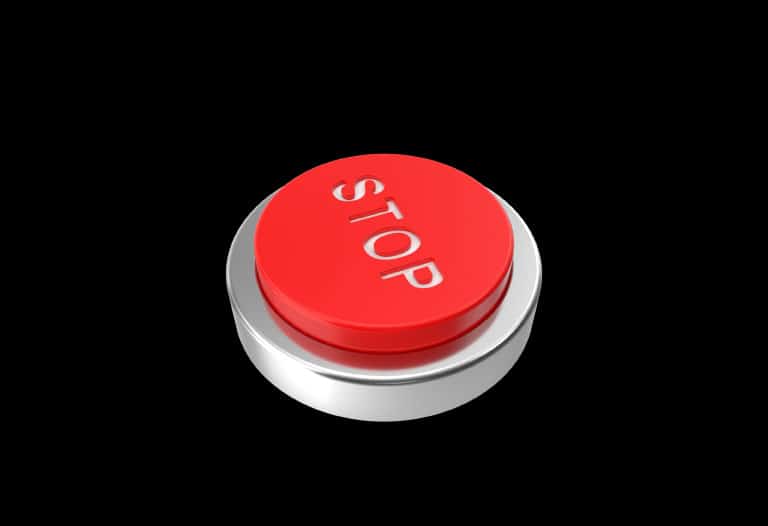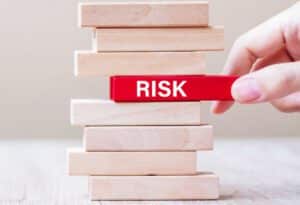
Table of Contents
TogglePart of our learning through the crypto-world, in which the world of trading plays an important role, consists of learning what not to do. Among the practices to avoid, we find overtrading.
We have plenty of examples in the history of mankind, which have shown us that acting on the basis of extreme positions can be risky and even harmful.
In the world of trading, we can regret two things, not trading or trading too much. As you can imagine by now, overtrading is perfected when we find ourselves in the second situation. Let’s see what it is and what measures we can take to avoid falling into it.
Overtrading
The concept of overtrading encompasses the situation in which a trader turns to the practice of excessive buying and selling of financial instruments, which in our ecosystem we call cryptocurrencies or tokens. It is a kind of unnecessary multiplication of operations.
We can detect it whenever a trader has too many open positions or is using an excessive amount of capital in a single operation.
It is evident that this practice is harmful for those who carry it out, since, as we will see in the following sections, the motives that lead to it are usually far from common sense and good judgment that allows traders to manage their own risks.
Of course, the number of trades that determine the existence of overtrading is related to the trader’s own style. It is essential to maintain control of our operations and to do so according to our previously established plans.
Before moving on with this concept, let’s look at its opposite and analyze its differences.
Differences between undertrading and overtrading
As I anticipated in the previous paragraph, the practice of undertrading is the opposite situation to that of overtrading. It occurs when there are no operations carried out by the trader, even when the desired conditions are present,
One of the main causes of undertrading is the fear of losing capital. The fear can come from various situations, failed past operations such as revenge trading, a trading plan that ended in failure or a lack of proper reading of the market.
The main difference with overtrading is that by not trading, the trader will be missing opportunities to make money, but at least he will not be losing capital due to unjustified decisions, guided by the lack of common sense or a good trading plan.
The genesis of overtrading
Overtrading occurs when a trader loses his way and moves away from the limits that his strategy or trading plan has delimited, after extensive research and self-knowledge. The genesis or cause of overtrading can come from various angles that affect the daily behavior of a trader.
We have the following examples in this regard:
- FOMO. An acronym that summarizes the phrase, “Fear of Missing Out”. When the trader feels that the train is leaving him and catches the generalized euphoria, he may abandon his plan and get on board when the party is ending.
- Enthusiasm/enthusiasm. The same situation could occur on an individual basis. A trader who is enthusiastic about his successes may leave his plan behind and take on an excessive number of trades.
- Fear. Whether influenced by general market sentiment or a succession of bad personal decisions, a trader may attempt to recoup his losses with a single trade, too risky or with too many positions at the same time individual investors often overtrade in an attempt to offset a loss.
All these situations, which influence our actions as traders from a psychological point of view, share the same dangerous condition:
- Moving away from the trading plan
Here are some tips to avoid falling into this risky practice.

How to avoid overtrading?
At this point of the article, it may seem obvious that the main advice to avoid overtrading is precisely not to stray from the trading plan. If you are making your first steps in the world of trading, it is likely that you have come across this recommendation more than once.
A trading plan, detailed in a precise and conscientious way, should cover from the number of positions at the same time that we are willing to hold, through the profit taking margins, up to risk management. By defining these parameters in advance, it will definitely be easier to move in a controlled manner through this intricate world.
However, there are some “extra” recommendations that we can add to our arsenal to avoid the temptation of operating under the clutches of overtrading.
Avoiding emotional trading
To successfully avoid emotional trading, we must strive to distinguish trading decisions based on rational arguments from those based on emotions. Trading requires cold hearts that know how to detach themselves from emotions that, if they rule them, could leave them in total ruin.
Holding a diversified portfolio
Let’s suppose that the rational decision as a trader is to hold more than one open position at the same time. Diversification, i.e. spreading our money over different assets, is a measure that protects our capital.
Citing an example, we can think that we decide to open “long” positions in BTC, ETH and ADA. In case there is a specific problem with ADA, which leads to a fall in its price, our positions in ETH and BTC, could be exempted from that hit.
Don’t risk more than you are willing to lose
This advice, which is highly recommended to beginners in the crypto-world, often presents certain complexities when it comes to understanding it. Clearly, no one is willing to lose money, so how do we know how much we are willing to lose? Perhaps risk management, with its calculations based on percentages, can give us an interesting guideline of the losses, which, if they occur, will not affect our sleep.
Undoubtedly, on this point, there is no single recipe and each trader must discover his tolerance as he analyzes his reactions to market events.

Final words
As I have already mentioned in previous articles, trading is a kind of mixture between a pseudo-science and an artistic practice. It is composed of theory, which we need to study and incorporate, but the improvement of its practice is given with experience and self-knowledge.
At certain times, either for reasons beyond our control and attributable to the market or precisely because of the situation we are going through, refraining from trading can be more beneficial than doing so…
As Jesse Livermore, “day trader” of the first hour, has said, many times money is earned by waiting, not trading. Waiting for the right opportunity and sticking to our initial plan seems to be a recipe that will bring us closer to successful portfolio management.



